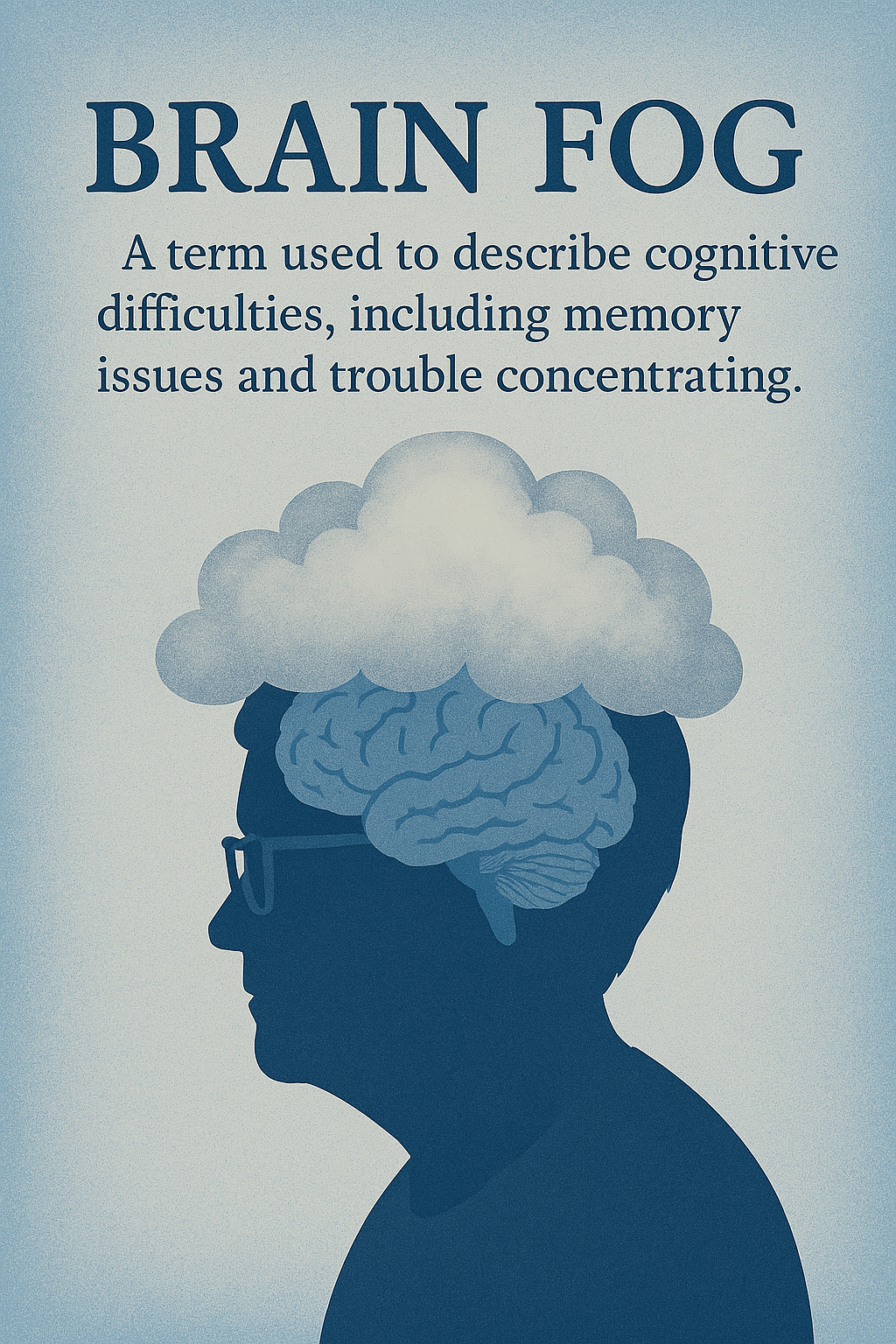Glossary for Life in Spite of MS
This glossary is a work in progress. With MS comes a multitude of terms and abbreviations that would fill even the biggest pot of MS alphabet soup. For that reason, MS terms will be added as we continue to build this site.
We hope you find it useful in your quest to understand multiple sclerosis and what it means to you. We also welcome your contributions, comments, and suggestions, as well. If you come across a word that you feel belongs here, just drop us a line in the comment section below and we'll see about adding it.
Glossary of MS Related Terms
A
- Antiphospholipid Antibody Syndrome - (APS) is an autoimmune disorder where the immune system mistakenly creates antibodies that increase the risk of blood clots.
- Ataxia – Loss of coordination due to nerve damage in the central nervous system.
- Autoimmune disease - A condition in which the immune system mistakenly attacks the body's own healthy cells, thinking they are harmful invaders.
- Axon – The part of a nerve cell that transmits electrical signals; often damaged in MS.
B
- Babinski Reflex - (also called the Babinski sign or plantar reflex) is an involuntary response where the big toe moves upward and the other toes fan out when the sole of the foot is stroked.
- Blood-Brain Barrier (BBB) – A protective layer of tightly packed cells that lines the blood vessels in the brain, preventing harmful substances, toxins, and pathogens from entering while allowing essential nutrients and oxygen to pass through.
- Brain Fog – A term used to describe cognitive difficulties, including memory issues and trouble concentrating.
C
- Central Nervous System (CNS) – The part of the nervous system that includes the brain and spinal cord, responsible for processing information, controlling movement, and regulating bodily functions.
- Cerebrospinal Fluid (CSF) – The fluid surrounding the brain and spinal cord, often tested for MS markers.
- Chronic - A condition or illness that is long-lasting or persistent, often continuing for months or years rather than resolving quickly.
- Chronic Progressive - A term used to describe a disease or condition that not only persists over time but also worsens gradually, leading to increasing symptoms or disability.
- Clinically Isolated Syndrome (CIS) – A first episode of neurological symptoms that may or may not develop into MS.
- Cog Fog – Slang for cognitive dysfunction in MS, including forgetfulness and difficulty processing information.
D
- Demyelination - The process of damage or loss of myelin, the protective covering around nerve fibers, which disrupts nerve signal transmission and can lead to neurological symptoms.
- Demyelinating Disease – A condition that causes damage to the myelin sheath in the brain, spinal cord, or peripheral nerves, leading to impaired nerve function.
- Diplopia - Also known as double vision, diplopia occurs when a person sees two images of a single object.
- Dysphagia – Difficulty swallowing, which can be a symptom of MS.
- Dysarthria – Slurred or slow speech due to muscle weakness or coordination issues.
E
- Evoked Potentials – Tests that measure electrical activity in the brain to detect nerve damage.
- Exacerbation – A flare-up or worsening of MS symptoms, also called a relapse.
F
- Fatigue – One of the most common and debilitating symptoms of MS.
- Foot Drop – Difficulty lifting the front part of the foot, leading to tripping or stumbling.
H
- Heat Sensitivity – A worsening of MS symptoms due to heat exposure.
- Hyperreflexia – Overactive reflexes, often seen in MS patients.
I
- Immunomodulating-Immunomodulator – Immunomodulating refers to the process of altering or regulating the immune system’s response, either by boosting or suppressing it, to help manage diseases. An immunomodulator is a substance or medication that modifies the immune system’s activity, often used to treat autoimmune diseases like MS by reducing inflammation and preventing the immune system from attacking healthy cells.
- Inflammation – The immune system’s response that leads to MS-related nerve damage.
- Interferons – A type of disease-modifying therapy (DMT) used to treat MS.
L
- Lesions – Areas of damaged or abnormal tissue in the brain or spinal cord caused by MS. These lesions disrupt nerve signal transmission, leading to various neurological symptoms.
- Lhermitte's Sign – A sudden, brief, electric shock-like sensation that travels down the spine when the neck is bent forward.
- Lumbar Puncture (Spinal Tap) – A procedure used to test cerebrospinal fluid for MS-related markers.
M
- Magnetic Resonance Imaging (MRI) – A key diagnostic tool for detecting MS lesions.
- Monoclonal Antibodies – A newer class of MS treatments targeting specific immune cells.
- Myelin – A fatty, protective substance that forms a sheath around nerve fibers, helping electrical signals travel quickly and efficiently between nerve cells.
- Myoclonus – Sudden, involuntary muscle jerks or twitches that can occur due to neurological conditions, metabolic disorders, or medication side effects.
N
- Neurologist - a medical doctor who specializes in diagnosing and treating disorders of the nervous system, which includes the brain, spinal cord, and nerves.
- Neuroplasticity – The brain’s ability to adapt and reorganize itself after damage.
- Nystagmus – Involuntary eye movements, sometimes seen in MS.
O
- Optic Neuritis (ON) – Inflammation of the optic nerve, often an early symptom of MS.
P
- Paresthesias – A sensation of tingling, numbness, or "pins and needles" that occurs without an obvious cause.
- Plaques – Areas of damage in the brain and spinal cord caused by MS.
- Prognosis - A medical prediction about the likely course and outcome of a disease, including whether symptoms will improve, worsen, or remain stable over time
- Progressive Multifocal Leukoencephalopathy (PML) – A rare brain infection linked to certain MS medications.
R
- Remyelination – The process of repairing damaged myelin, though often incomplete in MS.
S
- Spasticity – Muscle stiffness and spasms common in MS.
- Spasms - Sudden, involuntary muscle contractions that can cause stiffness, pain, or twitching.
- Steroids – Medications used to reduce inflammation during MS relapses.
T
- Tremors – Uncontrolled shaking, sometimes seen in MS patients.
U
- Uhthoff’s Phenomenon – Temporary worsening of MS symptoms due to heat exposure.
V
- Vestibular Dysfunction – Balance and dizziness issues caused by MS-related nerve damage.
W
- White Matter – The part of the brain affected by MS lesions.
Z
- Zanaflex – A muscle relaxant sometimes prescribed for MS-related spasticity.
This should be enough to get you started. And as I said earlier, we'll add more to the glossary as we go along. If you'd like to check out another version, here's Multiple Sclerosis Association of America's glossary. (Link opens in a new window).
Dear Friends,
"Life in Spite of MS is a participant in the Amazon Services LLC Associates Program, an affiliate advertising program designed to provide a means for sites to earn advertising fees by advertising and linking to Amazon.com. We're also part of the Ebay Partner Network, another affiliate program."
We'd also like you to know it doesn't cost one cent more when you click through the links here on our blog. Not one single penny. And we will make a little extra cash when you do click through. We'll be ever so appreciative. You also have our word that we'll only link to things that we would use ourselves, (or wish we could have or use).
Sincerely,
Cir & Akrista
You are reading original content written by Akrista or Cir L'Bert of Life in Spite of MS. If you enjoyed reading this blog, please consider following us on Facebook, Twitter, Pinterest, and Instagram. See you there!
Privacy Policy ~ Advertising Policy ~ Disclaimer ~ Contact Us ~ About Us




New! Comments
Have your say about what you just read! Leave me a comment in the box below.